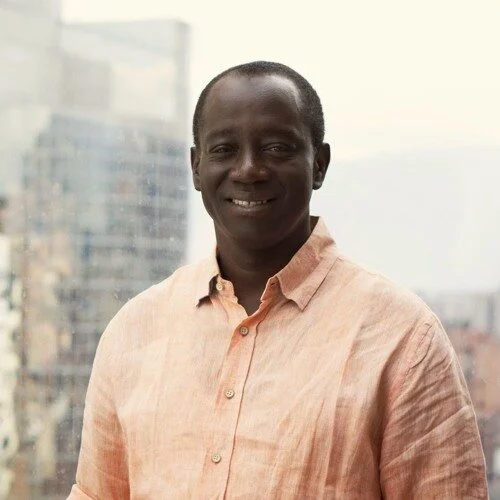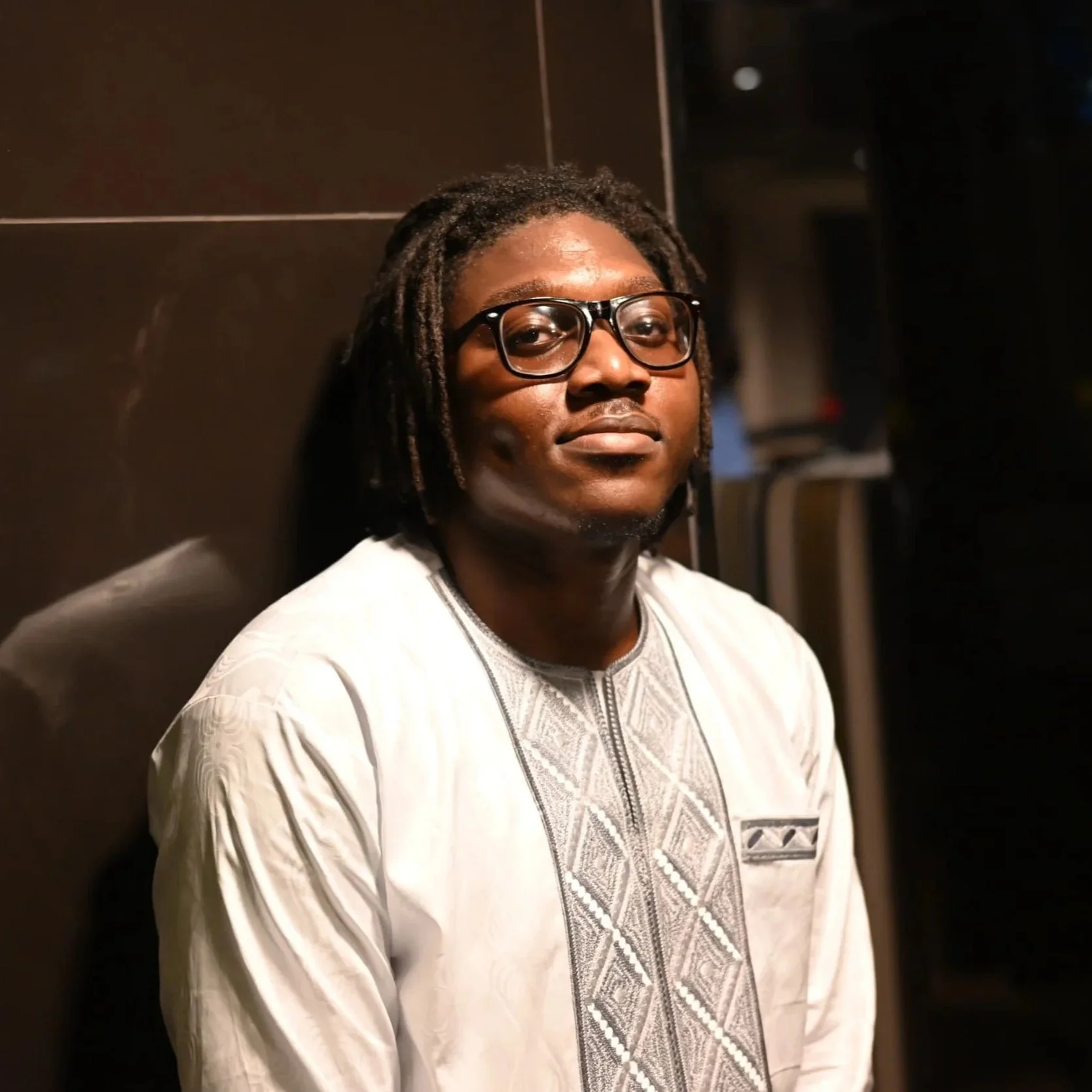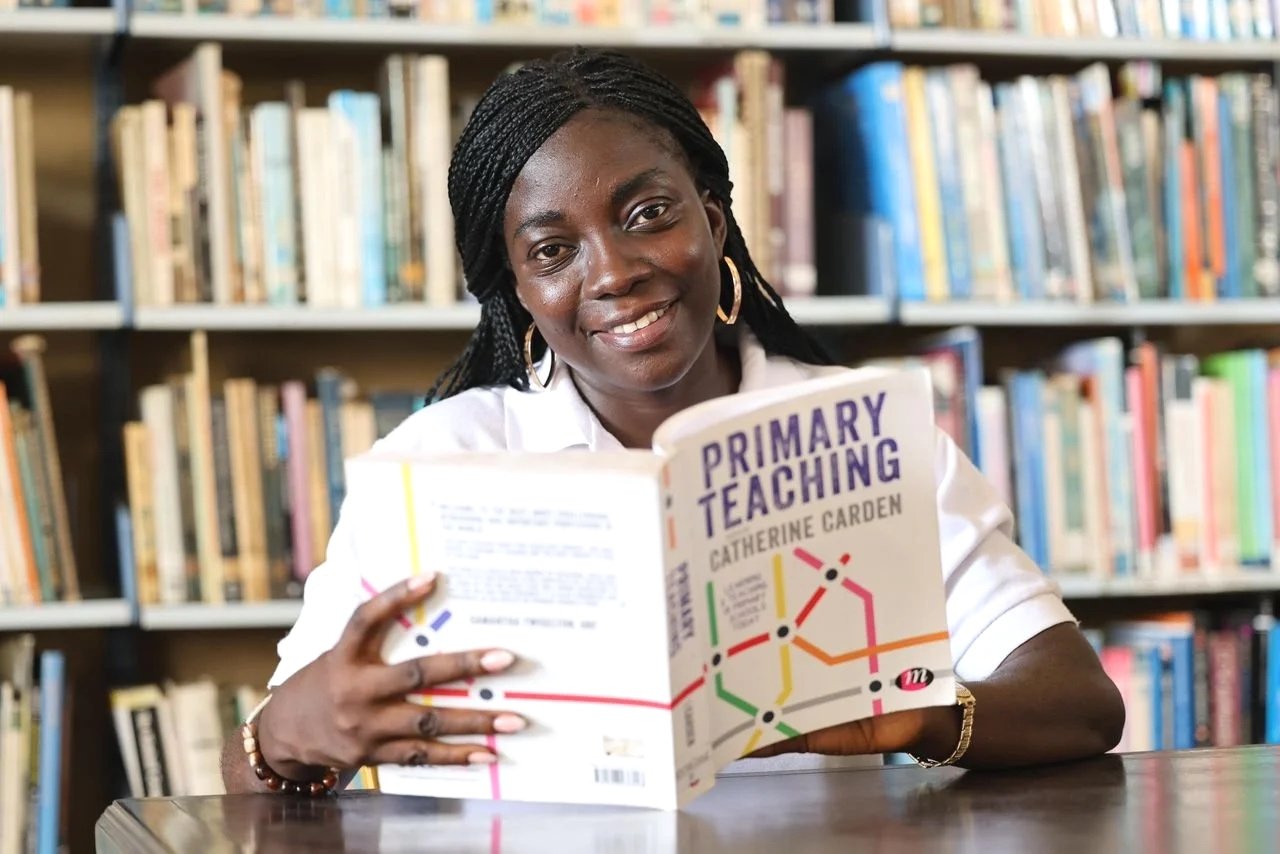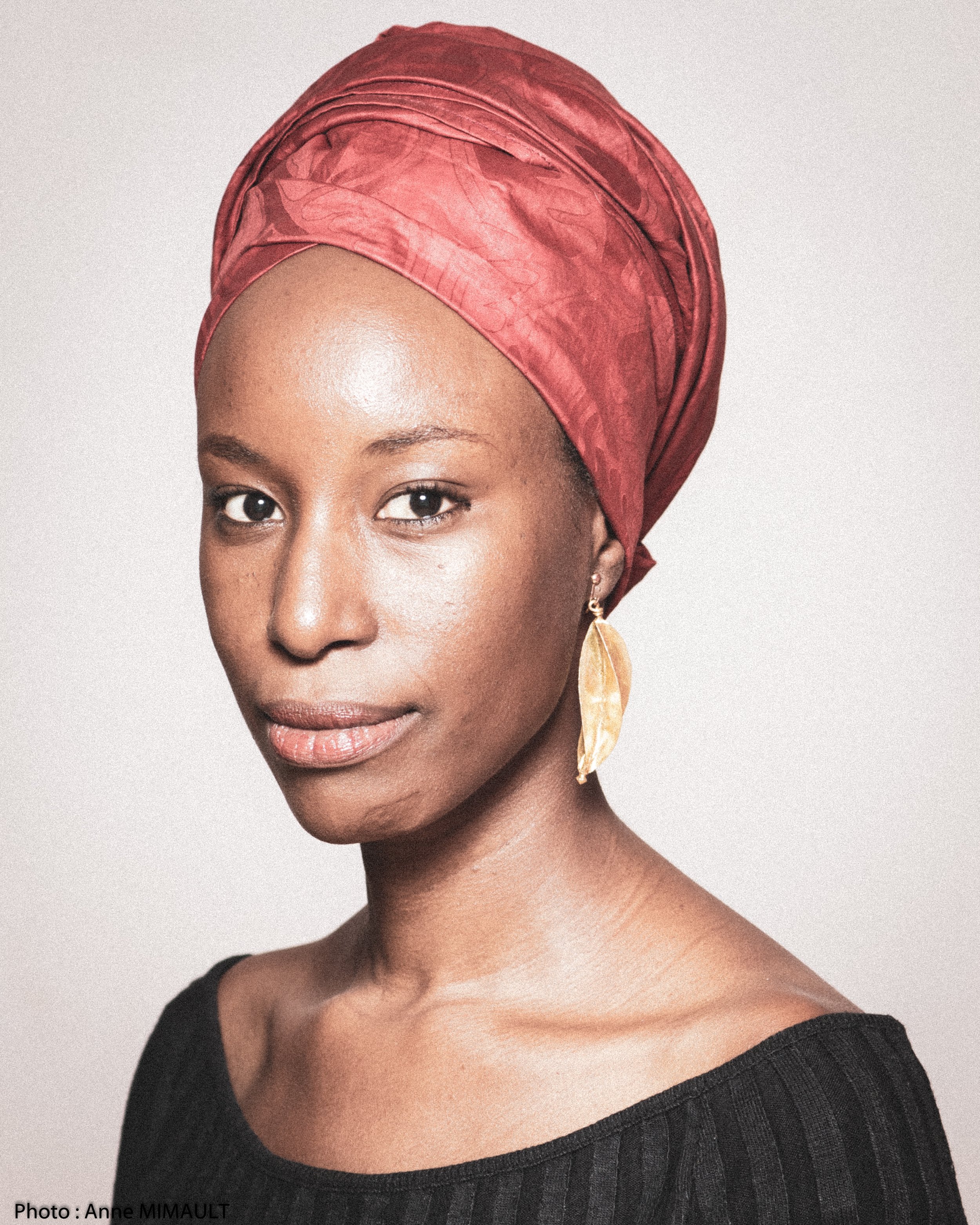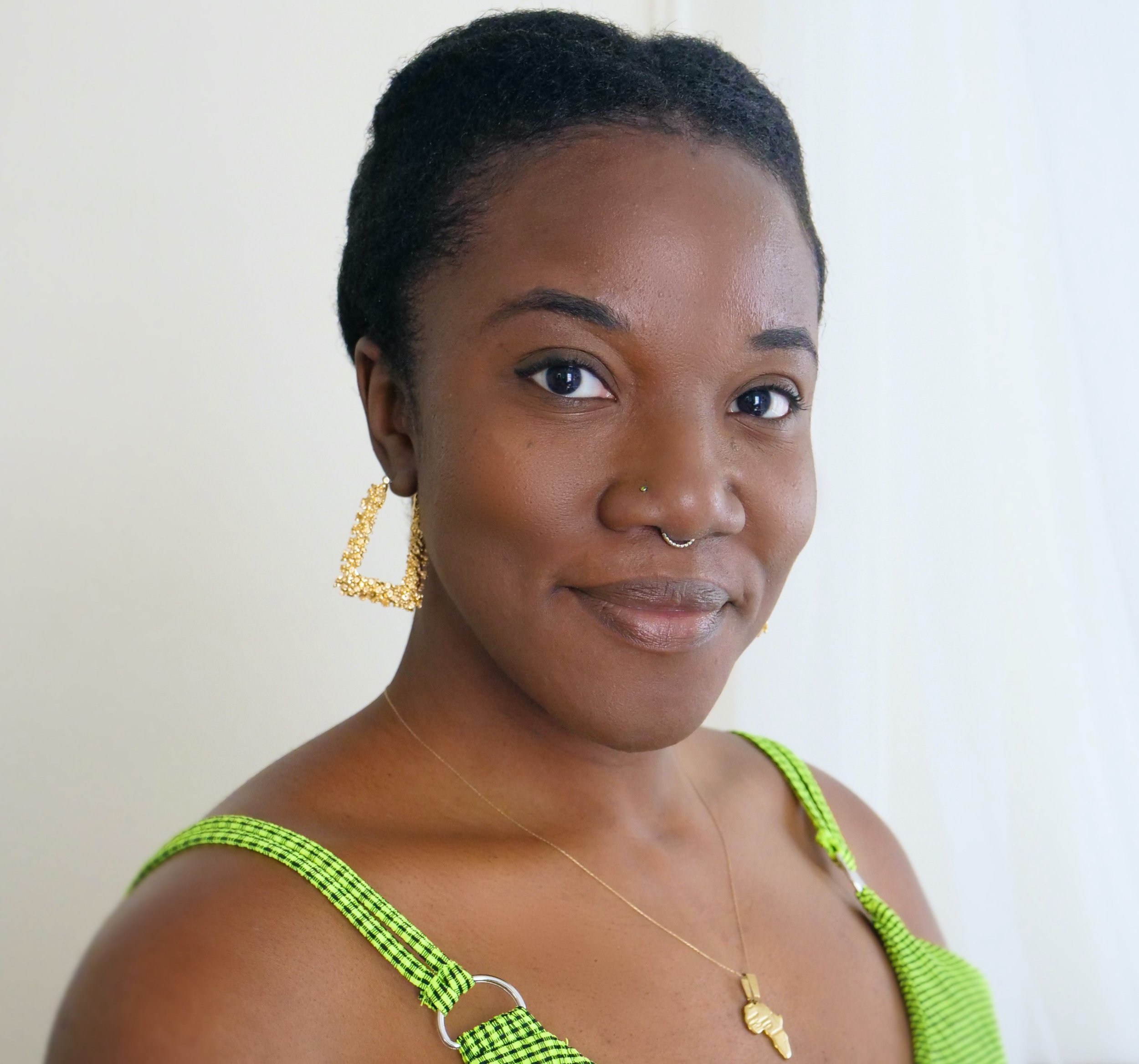
Sierra Leone at 60: Playwright Charlie Haffner Reflects
To celebrate 60 years after gaining independence, Poda-Poda Stories , interviewed Charlie Haffner, legendary Sierra Leonean playwright, founder of Freetong Players, and creator of popular radio drama Atunda Ayenda.
Charlie Haffner talked about the use of theatre arts over the years, and what Sierra Leoneans should reflect on after 60 years of gaining Independence.
Oumar Farouk Sesay on the Transformative Power of Poetry
Oumar Farouk Sesay is a published poet, novelist, and playwright. He was resident playwright of Bai Bureh Theatre in the '80s, and he has written several plays. He has been published in many anthologies of Sierra Leonean poets, including Lice in the Lion's Mane, Songs That Pour the Heart and Kalashnikov In The Sun. He is the President of PEN, Sierra Leone chapter. Using vivid imagery and metaphors, Sesay’s poems are beautifully woven, richly capturing the heartbeat of Sierra Leone. It was an honor to interview him, and he shared his creative journey with Poda-Poda Stories.
Poda-Poda: Thank you for granting me this interview. Tell us a little bit about yourself, your background, and your career as a poet.
FS: Thank you very much and I am delighted to a part of this. I started writing as early as in my teen years when I was in sixth form. Those were the days of theater groups in Sierra Leone. I was commissioned to write a play for Bai Bureh Theater Group, which was performed at City Hall, and that was my maiden work as a writer. Then I started dabbling with poetry here and there, but not in a serious way as I had engaged with theater. It was later in life that I started writing poetry. Then after university, I worked as a journalist briefly, for local newspapers like The Chronicle newspaper, and International papers like West Africa magazine. Later, the calling for poetry was so strong, so I became a poet. Occasionally I do articles for newspapers, but I am much more engaged in poetry writing than other forms of writing.
I came to the U.S. and I was fortunate to publish my first collection of poems “Salute To The Remains of a Peasant”. Those are poems that captured, events during the war in Sierra Leone. I later published another collection of poems, written post-war poems and some other themes of corruption and antisocial activities within the country. That collection was “The Edge Of A Cry.” Then after that, I was able to publish my first novel, “Landscape of Memory”, which addresses the theme of the war and its impact in Sierra Leone. I was also a Cadbury visiting Fellow, at the Birmingham University in the U.K and a fellow at the Baptist University in Hong Kong.
Poda-Poda: You mentioned you were into journalism and then you took up poetry later. How did that transition happen?
FS: It is difficult to place a finger on it, because poetry has a magnet that pulls a writer than other forms of writing. I felt preoccupied with issues happening around me, mostly during the war, and I started capturing it in metaphors that were so strong that I thought if I put them in prose, I might not have been able to capture them as exactly as they were.
Poda-Poda: Tell us about your new book, 400 Years of Servitude. Why did you decide to write this anthology?
FS: 400 Years of Servitude is mostly a collection of poems that deal with the theme of race relations and the impact it has on African Americans and Africans. There are cultural forces in international politics that tend to dictate the way we (black people) are treated all over the world. For example, policy makers in America and in the Western world, have a tendency of treating Africans in a manner akin to the way African Americans here are treated, like a lower caste of people. I was basically trying to see a correlation between the treatment of Africans and African Americans here in America. I saw that the connection is race. I started putting together poems that largely deal with race and race relations, and I did a span of 400 years, from the time the first slave was transported from Africa to the New World to date. There are poems that deal with the Middle Passage, and that deal with African Americans. That is why I called it 400 years of servitude.
Poda-Poda: That is a very good title. I interviewed Ishmael Beah and asked him a similar question to this: As a black writer living in the U.S, do you think it's your duty to write about global blackness or the global perception of blackness?
FS: Well, I think so. I wrote a poem about race relations called “The Look”. When you go into places here in the US , you are given a look that carries with it the burden of servitude, the look carries the historical baggage that was given to our brothers when they were chained in the plantations of yesteryears.
This look follows like a chain on your soul wherever you go. It became apparent that my African-American brothers were also giving me a look of a similar slant as if I am the Judas who sold a brother for thirty pieces of silver.
An excerpt from the poem is “brother, don't look at me. The look that they look at me for looking like you.”
Yes. the question of race relations must be addressed by authors for the benefit of the entire race. Writers do not write in a vacuum, you must really make sure your work has affinity to the reality around you, and race relations concerns writers everywhere in the world. I think as Sierra Leonean writers, we should be concerned with that too.
Poda-Poda: Your work has a lot of imagery and touches on a lot of themes. Some recurring themes in your work are patriotism and healing. How do you think literature, especially poetry, can help heal our nation and move us forward?
FS: Interestingly, we had a group that was formed during the war that was called Falui Poetry Society. Most of the prominent Sierra Leonean poets were members of that group, and we were able to organize poetry reading in public places and in private places. The reason being, poetry itself has a healing power.
As a collective, we published our poems at a time when the Special Court began in Freetown. Fortunately, the prosecutor, David Crane, was present when we launched the book that we published. “Songs That Pour The Earth” was the first collection we ever put together as an anthology that captured the poems of the war. He was at the launch and he bought the book. During the opening remarks of the Special Court, he read a poem by Sydnella Shooter, which chronicled the atrocities during the rebel war.
So as poets, we are witnesses. Just as Walt Whitman and other poets were witnesses to the American civil war, Sierra Leonean poets bore witness of the war in Sierra Leone. And we captured it in ways that will forever be there for posterity to see. We happened to be the first prosecution witness called upon to account for what we saw and felt during the eleven-year war.
Poda-Poda: You were a resident Playwright for the Bai Bureh Theatre, and you have also published several books. Of course, it is not a secret that it is a challenge being a creative person in Sierra Leone. What are some of the challenges that you faced and how have you been able to hold on to your craft for so long?
FS: From a personal point of view, writing is a very private project, a very private exercise. It starts as a migration from your mind to the public and that route is hurdle- prone in ways that affect the tenor and texture of the work created.
In the creative process you sometimes think in your native tongue and haul the thought to the page in another – this process done mostly at a subconscious level. You do not even know you are doing that. You may not even know that you are doing that until an idea from one culture refuses to yield meaning in another language. In the process of doing that, the question of how you maintain the balance to make sure that the purity of your thoughts is not is not diminished in another language? Those are creative challenges and poetic license sometimes help us navigate through those hurdles.
The bigger challenge though, is how seriously people in Sierra Leone and mostly other African countries take their writers. Writers have been on the forefront of the struggle for the independence of the continent. If you check South African history for example, writers like Dennis Brutus played an important role in making sure the of apartheid was exposed. In Nigeria, Wole Soyinka and Chinua Achebe contributed immensely in enhancing the creative image of the country and in promoting democracy. Thanks to them the expectation of the public from writers goes beyond the literary. The image of writers as agents of change put them in direct confrontation with authority sometimes with disastrous effect to the writers.
We come into writing with the onus of not only doing art for art's sake but with a manifesto to usher change. Ours is not art for art sake but art you can use to usher change; those who wants the status quo to remain unchanged perceive writers as opponents.
And of course, the question of readership is another big problem that we have. Most people started reading me when one of my poems made it in the West African exams’ syllabus- hence reading me becomes a matter passing or failing exams.
So, we must create a climate whereby we grow big at home, then seek recognition outside. In our own case, it’s the other way around. I think it’s because we have the “made in UK mentality” wherein we grew up buying sneakers that are made in the UK, so we also think that our talent must be made somewhere else before it is respected at home.
Poda-Poda: That is also an issue that's very interesting because I do agree with you that we tend to value creative work that’s acknowledged in the US or the UK, while people are making good work here at home too. That’s why I want Poda-Poda Stories to highlight the work being done at home too.
FS: The work Poda-Poda is doing is so good. There was a famous Sierra Leonean playwright, Kolossa John Kargbo. He was one of the best back in the day. He died in Nigeria and he was buried there. And just this year his play “Let Me Die Alone” is also been included in the West African exam syllabus. He also wrote Tabita Broke Ose, a comedy, and I’ve seen fragments of his work being projected in some social media posts lately, and I wonder about the fate of his many manuscripts.
We must have pride in who we are as a people. It's very important that some of us keep writing. It is difficult for a nation to exceed the potential of the story they narrate to themselves. The stories we tell each other, the stories we narrate of ourselves determines who we are as a nation. A story that constantly says “Salone nor betteh” might just create a failed state.
Poda-Poda: In what ways do you think literature, and the creative arts, has the function to shape our society as Sierra Leoneans, especially for the younger generation ?
FS: When we start to use language in the abstract, we start to use language to imagine a reality that is not yet in existence. Language give us the ability to create fiction. It is the creation of the fiction that sets human beings apart from other species.
In A Brief History of Humankind, Yuval Harari says because we can use language, we are able to create that which does not exist. And we create institutions that are creation of our imagination. We talk about human rights for example. You know, these are not concrete things, but because we are able to use the language to create that, we are able to organize society around the concepts that are not concrete. That is the power of language. We can imagine things that are not in existence and we can use that imagination as a signpost to guide us into greater good. Literature inspires, and it helps young people to imagine. For most people, the truth of fiction is the only truth they cling to in their journey through life.
Find out more about Oumar Farouk Sesay’s work at farouksesay.com
Questions and interview by Ngozi Cole.

